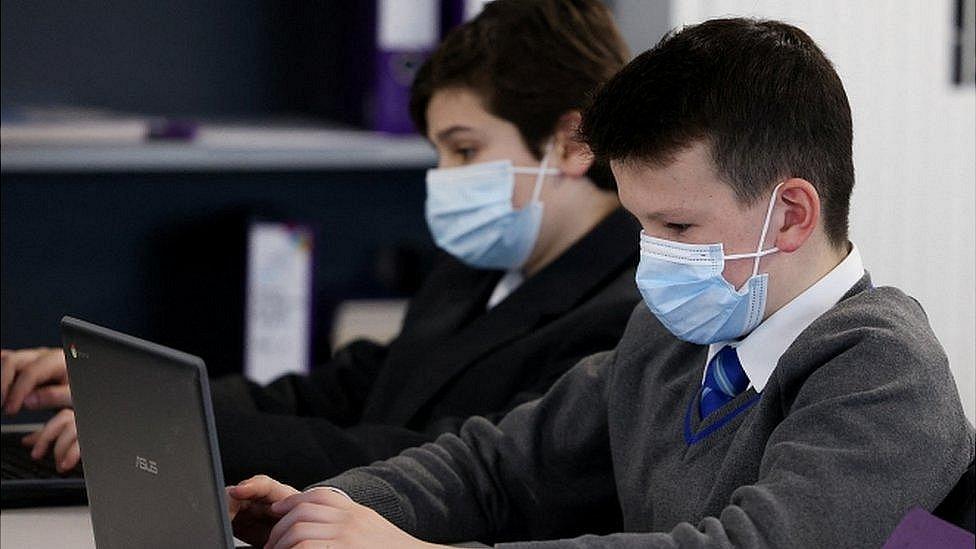Fines for parents rise as schools try to reach absent kids
- Published
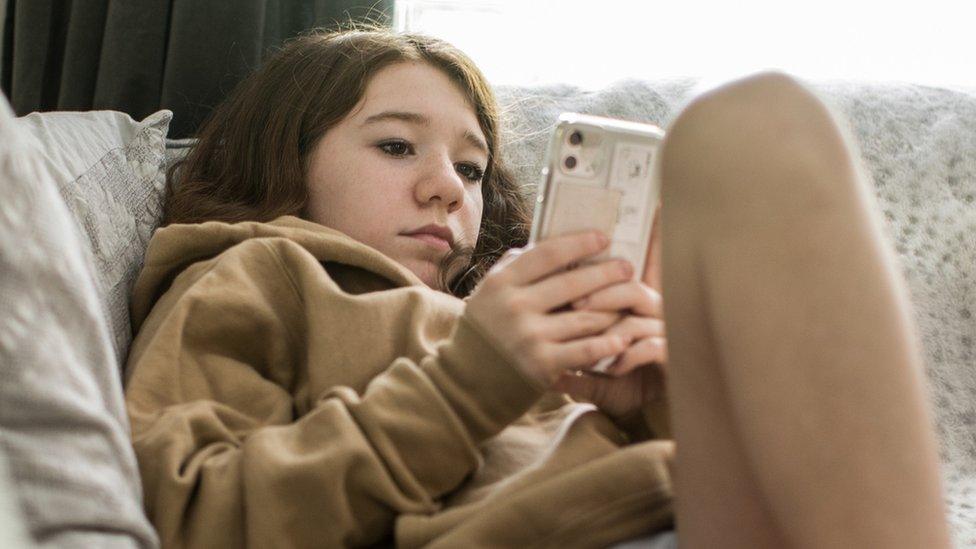
Almost 1.8 million children missed at least 10% of school in the autumn term in England, according to the children's commissioner for England
Parents in England are being hit with an increasing number of fines as schools try to encourage children to stop missing school.
The number of non-attendance fines being handed out dropped off during the pandemic, as self-isolation rules and lockdowns led to millions of children learning at home.
But there has been growing concern since it was revealed that almost 1.8 million children regularly missed school in the first term of this academic year.
As part of a mission to tackle this, parents have been fined £3.7m for the school year so far, figures obtained by the BBC show.

Year 10 pupil Olivia missed every other day of school at her lowest point in the last two years, after family tensions at home.
For a while she was living with her older sister, who didn't try to make her go to school, and soon Olivia was barely leaving the house - becoming more isolated and depressed as she spent her days scrolling through her phone.
"I didn't want to see anyone, I didn't want to talk," she says.
"I was in such a negative mindset - I didn't care about school, I didn't care about my grades."
Olivia goes to Unity City Academy in Middlesbrough, which six years ago had the worst attendance record in north-east England.
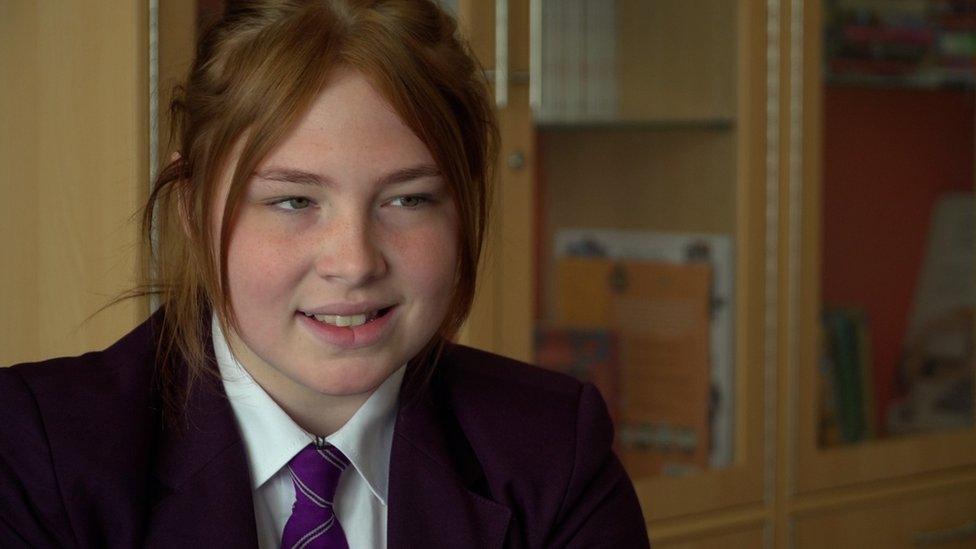
Olivia felt isolated and depressed when she stopped going to school
After a massive effort, the school's attendance is back up to the national average. Staff members such as Katie Coates and Emma Dryden are part of a drive to keep that number high.
At nine in the morning, they work their way through a list of phone numbers of parents of Year 10 pupils who haven't arrived.
Some parents just don't answer. Others say their child is on the way, or being kept off because of a doctor or dentist appointment.
The job requires a mixture of tact, kindness and toughness as they try to work out which families need extra help to get the teenagers back to school.
For some families there are financial barriers, with one pupil messaging to say they don't have trousers to wear into school.
Katie says a uniform bank within the school has been set up to help remove that barrier, but building trust with families can be tough.
"Some people aren't brave enough to come forward and say they can't afford things. Some parents can't afford the dinner money and it's cheaper to keep them at home."
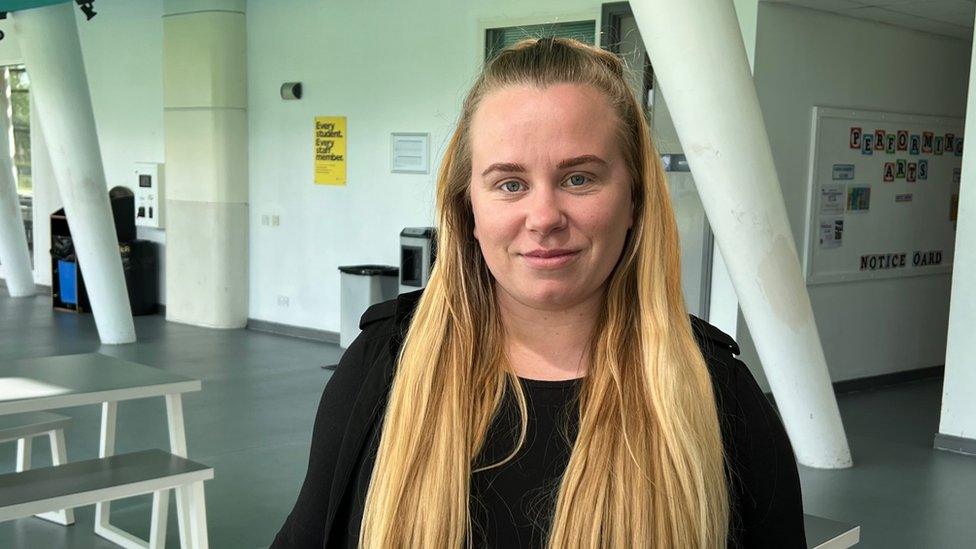
Katie Coates works with families to try to encourage children into school
Parents have also been known to keep older children off school to look after younger siblings.
Katie says persuading parents to encourage their children into school can be difficult, as many families face "heart-wrenching" struggles.
Every morning, Katie's colleague Emma knocks on the doors of any parents who haven't picked up the phone to explain why their child isn't in school.
At most of the visits, the curtains are closed and door stays shut, so a leaflet goes into the letterbox asking parents to contact the school if they need help.
At one house where there is no answer, the pupil had only been into school four days in the last three months.
Emma says they tried arranging late starts, early finishes, taxis and meetings with parents - but have had no success encouraging the child to come to school.
If none of those tactics work, parents with persistently absent children will get a £60 fixed penalty notice, which rises to £120 if it is not paid within weeks.
In the school year 2018-19, just before the pandemic, more than 272,000 fines with a total value of £14m were issued to parents in England for their children's non-attendance.
Our investigation has found fines are now increasing again.
Just over 71,000 fines were issued this school year up to Easter, costing parents a total of £3.7m.
Out of the 152 local authorities, 130 replied to our request for data for the last four years.
The number of fines issued to parents varies between councils and ministers want a more consistent approach.
'Incredibly challenging'
At Unity City Academy, the decision to put forward cases for parents to be fined is one small part of the work to encourage pupils to turn up each day.
Andy Rodgers, the principal, says the school has invested in making school more enjoyable and rewarding, and improving behaviour.
The incentives include rewards for tutor groups with the best attendance - from laying on a special tea at school, to day trips at the end of the year.
"Within the culture in our community, attendance to school is not necessarily something that is highly regarded," he says, adding that a push for 100% attendance gives students the best preparation for the world of work.
He says it's been "incredibly challenging" to persuade some children back to school.
But with support from school staff like Katie and Emma to help her manage her anxieties, Olivia is now back to school full-time.
She feels her mental health is better now that she's stopped missing lessons.
"You've got to drag yourself out of bed, make yourself come in and get through the day.
"But once you take that big step it gets better."
Additional FOI research by Nathan Standley.

Have you been affected by any of the issues raised here? You can get in touch by emailing haveyoursay@bbc.co.uk, external.
Please include a contact number if you are willing to speak to a BBC journalist. You can also get in touch in the following ways:
WhatsApp: +44 7756 165803, external
Tweet: @BBC_HaveYourSay, external
Or fill out the form below
Please read our terms & conditions and privacy policy
If you are reading this page and can't see the form you will need to visit the mobile version of the BBC website to submit your question or comment or you can email us at HaveYourSay@bbc.co.uk, external. Please include your name, age and location with any submission.

Related topics
- Published9 March 2022
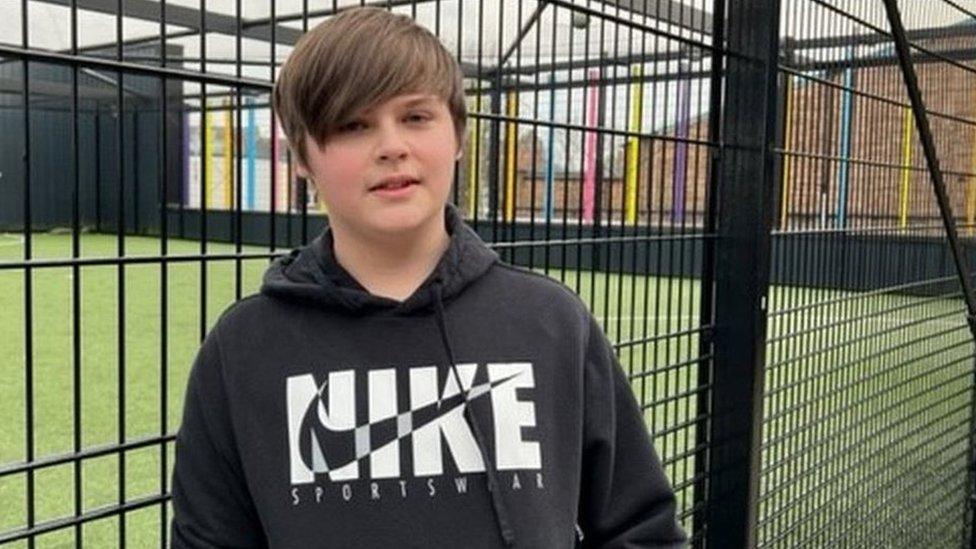
- Published19 January 2022
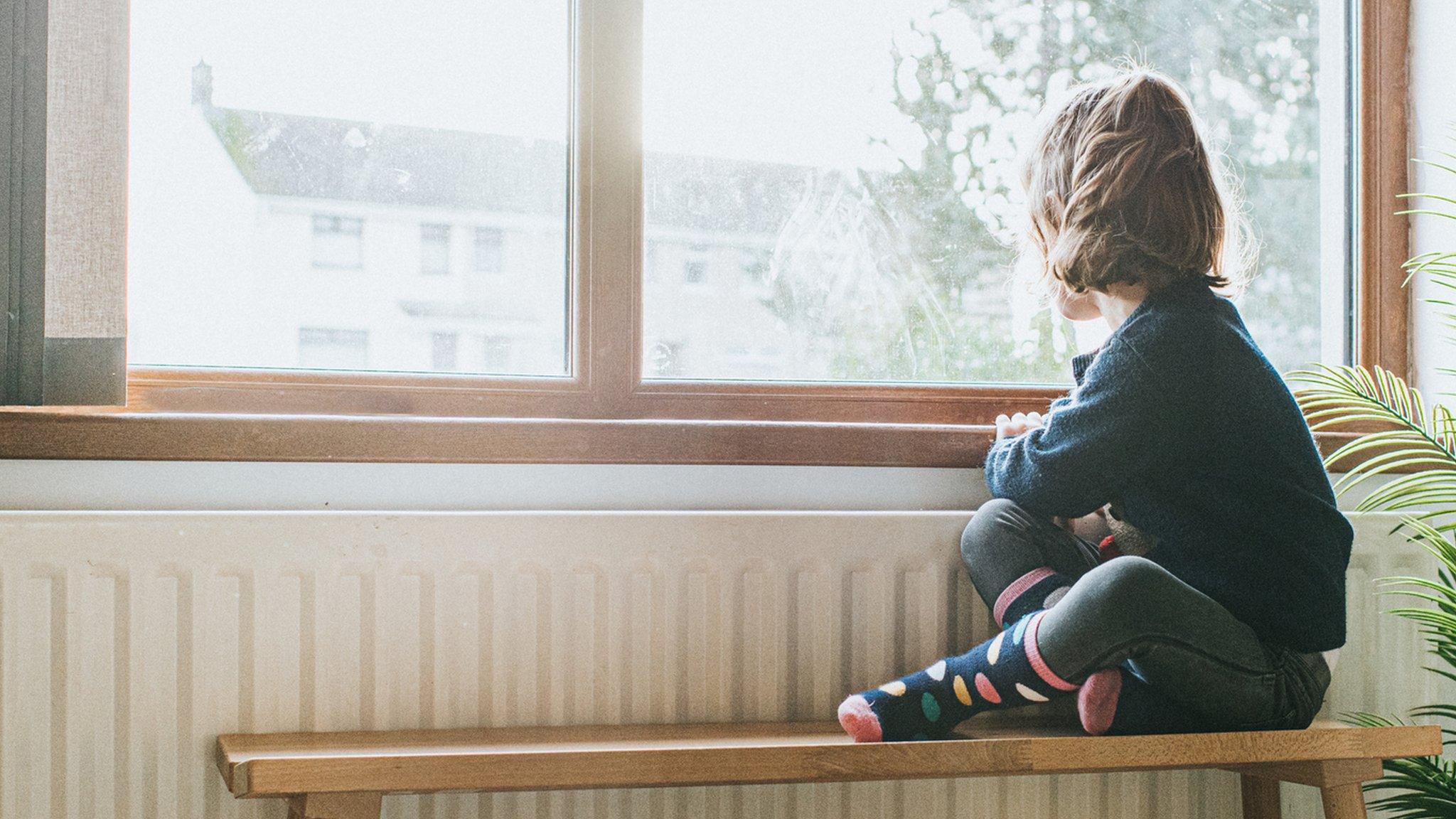
- Published4 February 2022
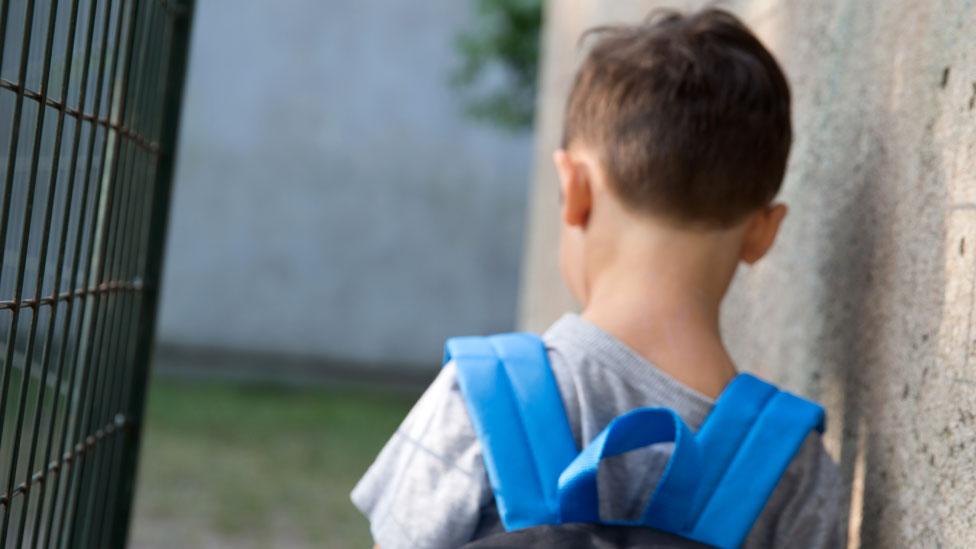
- Published11 January 2022
